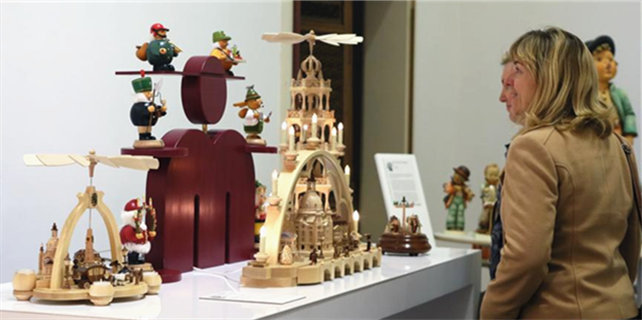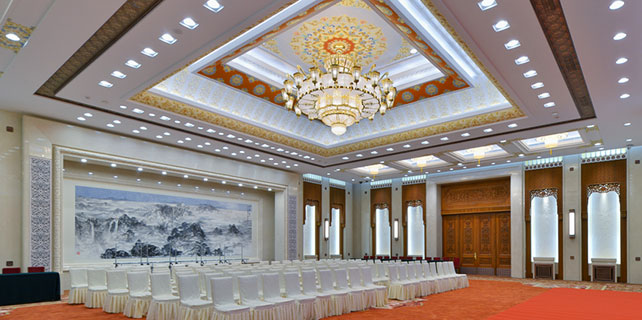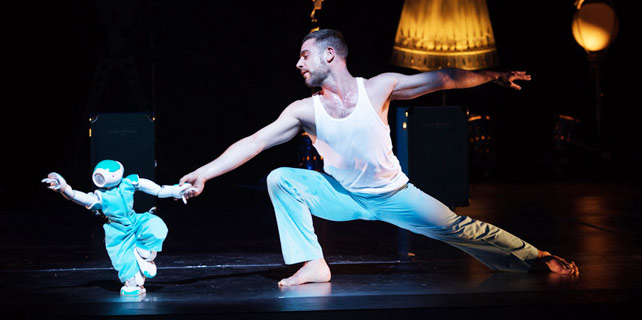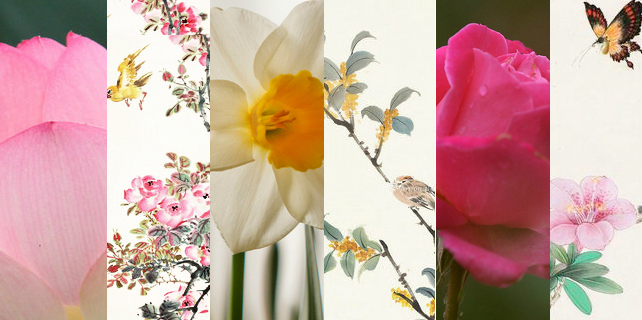Monkey King in Macao
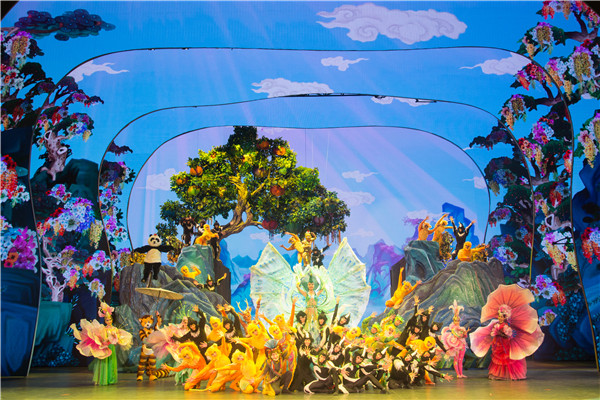 |
|
The Monkey King is set to be a pioneer production in the show business of Macao. [Photo provided to China Daily] |
The audience marvels at a massive cudgel flying in the air accompanied by the effects of lightening and thunder. The cudgel itself is a LED screen, shining in its red and yellow colors.
On the stage, the Monkey King is seen grasping a small-size cudgel while fighting a dragon, and the image of the dragon is projected onto another screen.
This is a scene from the show Monkey King, which was recently staged at the 1,700-seat Sands Cotai Theater in Macao.
The 70-minute presentation is a combination of martial arts, traditional operas, acrobatics and dance. Based on the classic Journey to the West, written during the Ming Dynasty (1368-1644), the show is about the adventures of Tang Dynasty (618-907) monk Xuanzang and his four disciples who traveled to India to collect Buddhist sutras.
"We have done our utmost to be faithful to the original book rather than do playful stories with fabricated plots," says the show's artistic director, Li Qiankuan.
Li is an award-winning film director and the honorary president of China Film Association.
He describes the book as an "inexhaustible mine" of precious legacy-one that reflects the spirit of traditional Chinese culture and the wisdom of Chinese civilization.
The book's story has been widely adapted for cinema, television, video games and cartoons.
Li says the show demonstrates ancient martial arts through acrobatics and modern techniques. The production team has carefully designed sets to present the plots creatively and maximize special effects for the audience.
Viewers can also see a tall Buddha hand and two huge talons reaching out from either side of the stage. They can feel immersed in the underwater palace of the Dragon King, with 3-D projections of pretty flowers, birds and fish. In addition, one of the Monkey King's companions in the show is a cuddly giant panda.
Hua Yan Group Ltd and Sands China Ltd jointly invested $300 million.
"When I watched shows in Las Vegas some 10 years ago, I wanted to make a show based on a Chinese story," says Xu Feng, president of the Beijing-based Hua Yan Group Ltd.
"We're looking at this as something new in the global business of shows."
He is the executive producer of the show and one of the playwrights.
Xu is promoting "China shows", a concept that refers to a new form of stage performance telling a Chinese story with elements like music, acrobatics and dances from the country.
He says his company brought in a group of scholars to join the creative team to make Monkey King the first such large-scale show.
Hua Yan also hired talented artists, acrobats, ballet dancers and martial arts masters from home and abroad for the show.
It took the writing team two years to complete the script. It took more than three years to complete the original music, which was created by composers such as Wang Liping.
Wang became a household name in China following the success of the 1987 TV series, A Dream of the Red Mansions, in which his music was used.
"It is inspiring to see that traditional culture can be demonstrated with modern vitality in such a manner. This show is more than just singing and dancing. It is telling a classic story that can be easily understood by both Chinese and foreigners," says Zhang Huijun, president of Beijing Film Academy, after watching the show.
While the earnings from Macao's casinos are now more than those of Las Vegas, Macao's cultural and tourism industries aren't as developed as those of the US city, Xu says.
Revenues from Macao's gambling industry were three times of those in Las Vegas in 2015.





